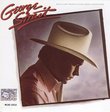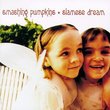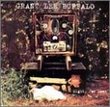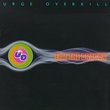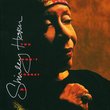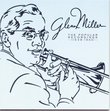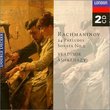| All Artists: Beethoven, Ludwig, Vickers, Klemperer Title: Fidelio Members Wishing: 1 Total Copies: 0 Label: Angel Records Release Date: 9/23/1997 Genre: Classical Styles: Opera & Classical Vocal, Historical Periods, Classical (c.1770-1830), Modern, 20th, & 21st Century Number of Discs: 2 SwapaCD Credits: 2 UPCs: 2207720700007, 724355621122, 220772070000 |
Search - Beethoven, Ludwig, Vickers :: Fidelio
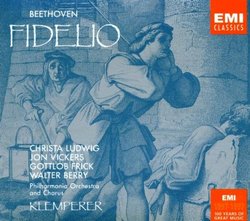 | Beethoven, Ludwig, Vickers Fidelio Genre: Classical
|
Larger Image |
CD DetailsSimilarly Requested CDs
|
CD ReviewsA powerful, gorgeous Fidelio! 09/22/1999 (5 out of 5 stars) "Such a moving version of Fidelio! Orchestra and singers ring out every note with clarity and deep, serious meaning. Christa Ludwig is the best Leonore I've heard: luminously sweet, sad and strong. She soars on her high notes with flawless ease. It's really important to me that the voices of Leonore and Marzelline be distinctive from one another, so Ludwig's golden-deep tone and amazing range are the perfect counterpart for the lighter soprano. Vickers is Ludwig's perfect Florestan, with a dark, metallic tenor... capable of expressing such lyrical suffering. The tempo of their reunion duet at first seemed to me a little slow for the ecstatic moment but it ends up being overwhelmingly emotional and powerful; as is the entire opera. All the soloists are sure of their characters and their notes. Berry and Frick are perfect in their roles. And the chorus is brilliant. I can't stop listening to the atmospheric, gripping prison act! A really majestic recording." A "FIDELIO" FOR THE AGES lesismore26 | Chicago, Illinois USA | 01/09/2000 (5 out of 5 stars) "There are simply not enough superlatives to describe this recording. It's THAT good ---- still the greatest recorded performance of Beethoven's sole opera. Otto Klemperer's reading amounts to something that one seldomly encounters in opera ----- a shattering and emotionally vaulting experience. Klemperer grabs the listener and doesn't loosen his grip until his performance reaches its conclusion in a state of profound exaltation. Christa Ludwig is heard in what may well be the greatest recorded performance of her career. A mezzo soprano with a generous upward extension, she nonetheless delivers an "Abscheulicher" that is every bit as powerful in its grandeur as that of either Kirsten Flagstad or Birgit Nilsson. Her Leonore is so moving, so heartfelt, and so human that one cannot help but to surrender to her. With all due respect to the formidable Leonores of Kirsten Flagstad, Birgit Nilsson, and more recently, Jessye Norman, I consider Ludwig's to be the greatest creation of them all. The same can be said of Jon Vicker's Florestan, which also preserves him in what may be his greatest moment on recordings. Vicker's work in the great Dungeon Scene in Act II is so realistic, and his characterization so graphic, that the plight of Florestan all but spills out of the stereo speakers, and in this instance, we truly care about what happens to both Florestan and Leonore. The supporting cast performs on the same level as the two illustrious principals ------ not a weak link anywhere. This is not merely the greatest "Fidelio" ever recorded: it is surely one of the great recordings of the twentieth century, and its an essential purchase." Exceptional Recording Leon | Stanford, CA United States | 04/10/2000 (5 out of 5 stars) "An amazing recording! No other recording of Fidelio can compare to this masterpiece. Vickers makes an extremely moving Florestan. Ludwig's Leonore is impeccable. I have listened to the non-remastered edition, and must say that the remastering makes quite a difference in the sound quality. The quality is now up to date with the most clear recordings out there. I recommend this as the only copy of Fidelio one need buy. This opera has been much criticized but this recording has proven to me the exceptional genius behind it."
|

 Track Listings (20) - Disc #1
Track Listings (20) - Disc #1
